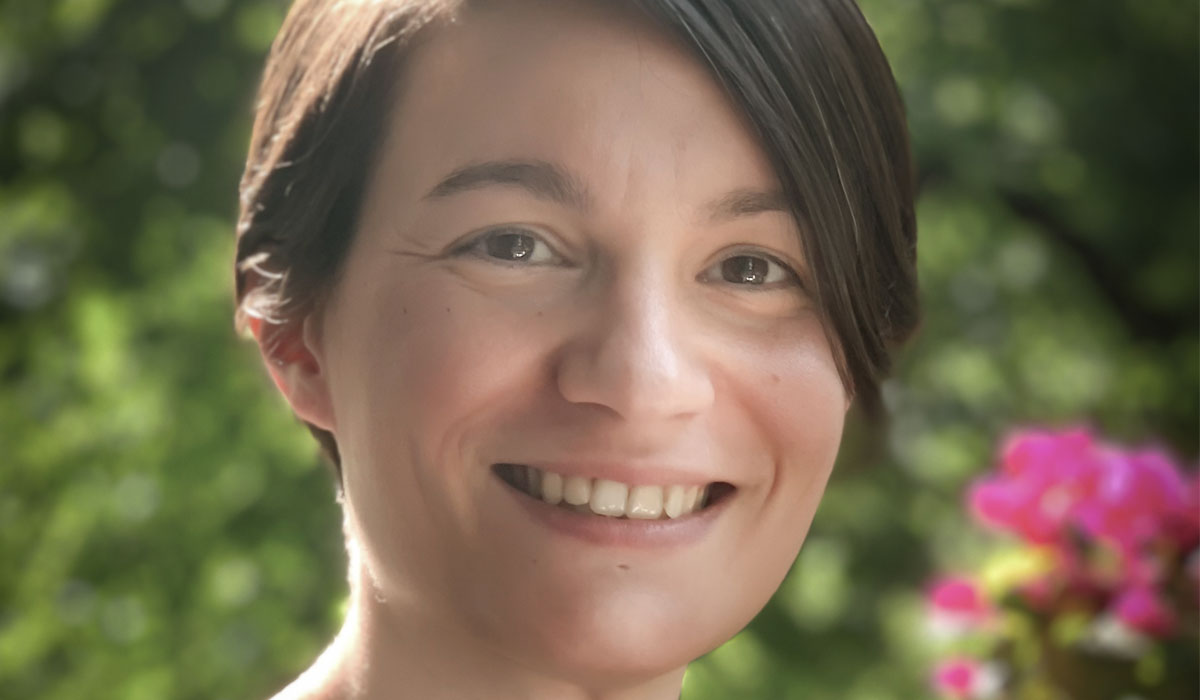Hello Dr. Pappa, thank you very much for taking the time to answer our questions. Please introduce yourself.
I am an Emmy Noether junior group leader at the Technical University of Berlin. I completed my PhD at Telecom Paristech in 2014 and then worked as a postdoctoral researcher at UCL, the University of Edinburgh and the Free University of Berlin.
How did you become aware of the research field of quantum communication and quantum cryptography and what motivated you to specialize in this area?
During my studies I was very interested in cryptography and secure communication. I was pursuing a theoretical MSc in Computer Science in Paris and it was there that I was introduced to the topic of quantum computing and communication. At the time, this was a relatively new field that was attracting a lot of attention, and many new and interesting questions were waiting to be answered.
Can you give us an insight into your current research interests in quantum communication and quantum cryptography? What challenges do you see in this research area and how could your results potentially influence technology development?
I am currently working intensively on achieving anonymity in quantum communication. With my students and external cooperation partners, we investigate both theoretically and experimentally how secret keys can be established between multiple parties in an anonymous way. In general, I am particularly interested in communication protocols that are feasible with today's technology and work closely with experimental physicists on several projects that go beyond the standard application of quantum key distribution. I am also active in the Quantum Internet Alliance to research what the future quantum internet might look like. These efforts are intended to identify the most promising avenues for future technological development in quantum communications. The main problems we are currently facing are of a practical nature, mainly that the hardware required to implement our protocols is not available and we have to deal with problems of losses and errors. This is also one reason why the secure delegation of computations to quantum online servers is a promising approach for the near future.
Quantum technology is an emerging topic: How do you assess the importance of quantum communication and quantum cryptography for society and the technology industry in the coming years?
Quantum technology aims to revolutionize the way we communicate, offering the possibility of providing persistent and unbreakable security, anonymous communication and unprecedented computing power. Although we are still figuring out the full potential of quantum communications for the good of society, there are several proposals for how quantum communications can be used for electronic voting, multipart computing, secure health data processing, work scheduling, and much more. Industry is already gearing up for the “quantum future” by first trying to understand where quantum communications might be relevant in its field, and secondly, how it might use this new opportunity to increase its impact and improve its services and products.
What do you think is the role of researchers like you in promoting and increasing public understanding of quantum technologies?
Researchers are the key players in public understanding of quantum technologies because they can show what their research is about in public events such as the Long Night of Science. Popular science articles also help explain what we do and talk about groundbreaking results in a more accessible form. After all, outreach programs funded by the BMBF have exactly this goal; In the past, we have participated in such a program (together with HTW Berlin) by organizing seminars in classrooms and developing online material for students, with a focus on gender-neutral education.
As an Emmy Noether Fellow and Junior Research Group Leader, you certainly have a lot of experience in supporting young talent: How do you support young researchers in your field, and how important is it to support young scientists?
It is of course important to adequately support young researchers at the beginning of their careers, as they will be the future workforce in the field of quantum technology. I believe in comprehensive education and freedom to explore topics. Young researchers should have the opportunity to take part in workshops and seminars, visit other research groups and exchange knowledge with other scientists, both in academia and in industry. You should gain a broad understanding of quantum technologies, both theoretically and experimentally, in order to be able to research various topics in this field.
Berlin is often cited as an important location for research and innovation in the field of quantum technology: How do you and your research group benefit from the scientific ecosystem in Berlin?
Berlin is actually an important location for quantum technologies, as it has developed into a center for research and innovation in recent years, both at universities and in industry. My group is involved in many of these efforts. We are part of the Einstein Research Unit for Quantum Technologies and the Berlin Quantum Alliance and we of course actively collaborate with other research groups in Berlin, both theoretically and experimentally. We are also involved in research projects with other researchers based in Berlin; A notable example is tubLANQ.0, where we want to develop a prototype for a quantum network on the TU Berlin campus.
How do you assess Germany's position in the research and development of quantum technologies compared to other countries? Are there transnational collaborations or research networks that are relevant to progress in your research area?
Germany has a very strong position in the research and development of quantum technologies, as there are many excellent universities and researchers across the country working on all aspects of the field. There are also large transnational collaborations relevant to the field of quantum communications, such as the “Quantum Repeater Link” (QR.X) research cluster or the jointly funded EU-BMBF project Q-Net-Q, in which we are also involved, which aims to build a quantum-safe network in Germany.
Thank you for the exciting interview!

